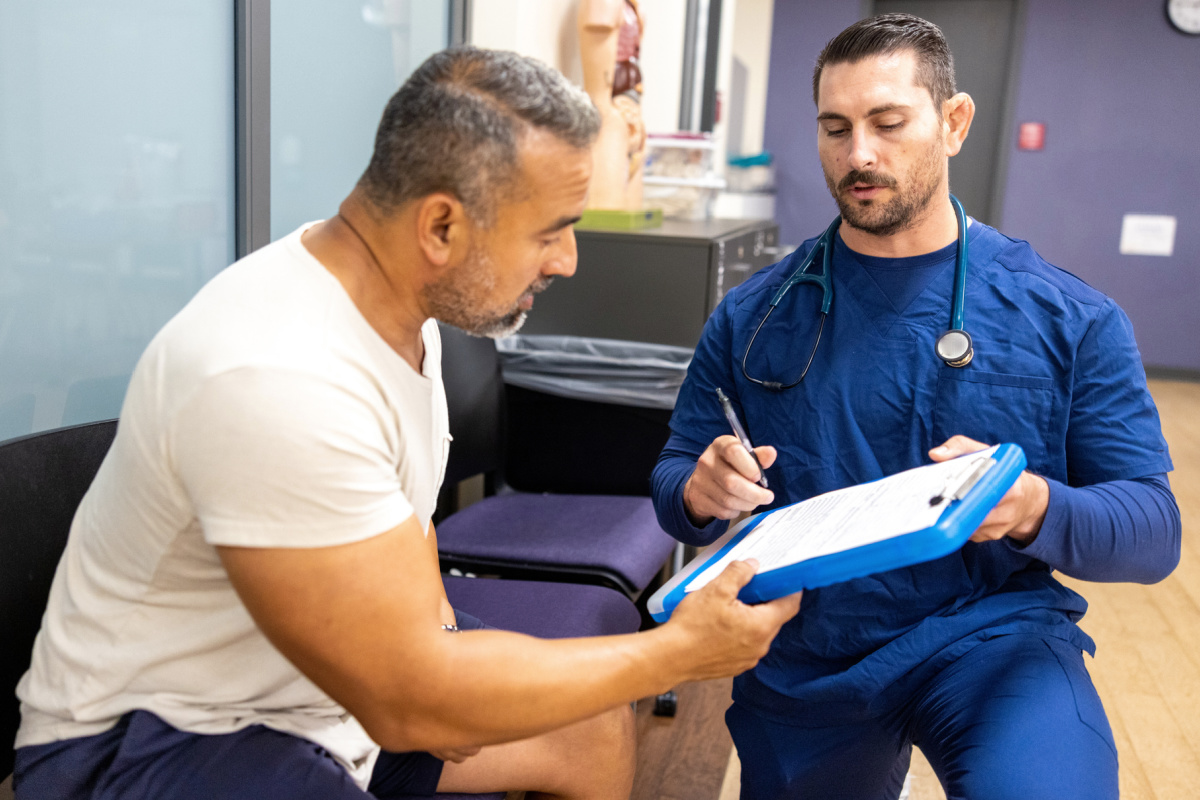Medical Justice provides consultations to doctors facing medico-legal obstacles. We have solutions for doctor-patient conflicts, unwarranted demands for refunds, online defamation (patient review mischief), meritless litigation, and a gazillion other issues. We also provide counsel specific to COVID-19. If you are navigating a medico-legal obstacle, visit our booking page to schedule a consultation – or use the tool shared below.
“Can Medical Justice solve my problem?” Click here to review recent consultations…
all. Here’s a sample of typical recent consultation discussions…
- Former employee stole patient list. Now a competitor…
- Patient suing doctor in small claims court…
- Just received board complaint…
- Allegations of sexual harassment by employee…
- Patient filed police complaint doctor inappropriately touched her…
- DEA showed up to my office…
- Patient “extorting” me. “Pay me or I’ll slam you online.”
- My carrier wants me to settle. My case is fully defensible…
- My patient is demanding an unwarranted refund…
- How do I safely terminate doctor-patient relationship?
- How to avoid reporting to Data Bank…
- I want my day in court. But don’t want to risk my nest egg…
- Hospital wants to fire me…
- Sham peer review inappropriately limiting privileges…
- Can I safely use stem cells in my practice?
- Patient’s results are not what was expected…
- Just received request for medical records from an attorney…
- Just received notice of intent to sue…
- Just received summons for meritless case…
- Safely responding to negative online reviews…
We challenge you to supply us with a medico-legal obstacle we haven’t seen before. Know you are in good hands. Schedule your consultation below – or click here to visit our booking page.
A Wisconsin nurse is accused of, among other less exciting things, amputating a patient’s foot without authorization. She allegedly told her colleagues (jokingly, we assume) that she intended to stuff the patient’s foot and display it in her home to serve as a ward against frostbite.
While those allegations do turn heads (ours included), the fact pattern (as we understand it) is more mundane than you’d think. There are lessons to be learned, however.
The patient was in hospice. By all accounts, the amputated foot was beyond repair and barely functional. Not an excuse to amputate without authorization, but the fact pattern indicates this was by no means a healthy extremity. The formal complaint also stated that there is no evidence that the amputation of the foot (authorized or not) hastened the patient’s death.
How did this supposedly happen? The Spring Valley Health and Rehab Center received the patient after he suffered a fall in his home. The fall occurred in March 2022. Emergency personnel found the heat turned off. The patient lived alone. Recall this happened in Wisconsin.
The patient’s feet became frostbitten. Doctors discovered necrotic tissue during treatment. According to the testimony of several nurses, the amputated foot was hanging on by a tendon and a few inches of skin.
The accused nurse suggested amputating the foot to preserve the patient’s comfort. Her colleagues told her not to do it. At some point in this process, the nurse (again, we assume jokingly) suggested mounting the patient’s foot in her family’s home. You know the rest.
According to another nurse’s testimony, several nursing staff members (including the accused) entered the patient’s room to change his bandages. It was during this process the unauthorized amputation allegedly occurred. The nursing department director received conflicting reports of the patient’s experiences during the amputation. One stated the patient likely felt little to no pain. Another nurse noted the patient told her privately that he did experience pain during the amputation and that “he felt everything, and it hurt very bad.”
The accused nurse told the investigator that she intended to act in the patient’s best interest but acknowledged that the patient never asked the nursing staff to amputate his foot. The Wisconsin Board of Nursing is currently investigating.
The take-home point for doctors, nurses, and all healthcare professionals: Recognize the dangers of acting without proper authorization. Healthcare often requires us to make challenging, split-second decisions. But acting without appropriate authorization often invites disaster. Confer with your colleagues and seek the wisdom of seasoned veterans.
What do you think? Let us know in the comments below.
Medical Justice provides consultations to doctors facing medico-legal obstacles. We have solutions for doctor-patient conflicts, unwarranted demands for refunds, online defamation (patient review mischief), meritless litigation, and a gazillion other issues. We also provide counsel specific to COVID-19. If you are navigating a medico-legal obstacle, visit our booking page to schedule a consultation – or use the tool shared below.
“Can Medical Justice solve my problem?” Click here to review recent consultations…
all. Here’s a sample of typical recent consultation discussions…
- Former employee stole patient list. Now a competitor…
- Patient suing doctor in small claims court…
- Just received board complaint…
- Allegations of sexual harassment by employee…
- Patient filed police complaint doctor inappropriately touched her…
- DEA showed up to my office…
- Patient “extorting” me. “Pay me or I’ll slam you online.”
- My carrier wants me to settle. My case is fully defensible…
- My patient is demanding an unwarranted refund…
- How do I safely terminate doctor-patient relationship?
- How to avoid reporting to Data Bank…
- I want my day in court. But don’t want to risk my nest egg…
- Hospital wants to fire me…
- Sham peer review inappropriately limiting privileges…
- Can I safely use stem cells in my practice?
- Patient’s results are not what was expected…
- Just received request for medical records from an attorney…
- Just received notice of intent to sue…
- Just received summons for meritless case…
- Safely responding to negative online reviews…
We challenge you to supply us with a medico-legal obstacle we haven’t seen before. Know you are in good hands. Schedule your consultation below – or click here to visit our booking page.
Jeffrey Segal, MD, JD
Chief Executive Officer and Founder
Dr. Jeffrey Segal, Chief Executive Officer and Founder of Medical Justice, is a board-certified neurosurgeon. Dr. Segal is a Fellow of the American College of Surgeons; the American College of Legal Medicine; and the American Association of Neurological Surgeons. He is also a member of the North American Spine Society. In the process of conceiving, funding, developing, and growing Medical Justice, Dr. Segal has established himself as one of the country’s leading authorities on medical malpractice issues, counterclaims, and internet-based assaults on reputation.
Dr. Segal was a practicing neurosurgeon for approximately ten years, during which time he also played an active role as a participant on various state-sanctioned medical review panels designed to decrease the incidence of meritless medical malpractice cases.
Dr. Segal holds a M.D. from Baylor College of Medicine, where he also completed a neurosurgical residency. Dr. Segal served as a Spinal Surgery Fellow at The University of South Florida Medical School. He is a member of Phi Beta Kappa as well as the AOA Medical Honor Society. Dr. Segal received his B.A. from the University of Texas and graduated with a J.D. from Concord Law School with highest honors.
In 2000, he co-founded and served as CEO of DarPharma, Inc, a biotechnology company in Chapel Hill, NC, focused on the discovery and development of first-of-class pharmaceuticals for neuropsychiatric disorders.
Dr. Segal is also a partner at Byrd Adatto, a national business and health care law firm. Byrd Adatto was selected as a Best Law Firm in the 2023 edition of the “Best Law Firms” list by U.S. News – Best Lawyers. With decades of combined experience in serving doctors, dentists, and other providers, Byrd Adatto has a national pedigree to address most legal issues that arise in the business and practice of medicine.





A few thoughts about this case:
1)Was it not malpractice for the physicians to not have removed, the dead foot that was: “the amputated foot was hanging on by a tendon and a few inches of skin.”?
2)This foot no doubt caused the patient pain, with the residual nerves.
3)This foot was clearly not viable.
4)This foot made dressing changes difficult if not impossible, and painful for the patient.
5)Aside from the nurse’s alleged comments, a dressing change might have accidentally completed the removal of the foot.
6)Amputation is probably the wrong word. Debridement of the dead skin was probably a more appropriate term. Amputation makes this sound like the nurse was practicing medicine.
7)Let’s give the nurse the benefit of the doubt in this case, but at the same time, let’s also acknowledge that she was cleaning up the mess other people left to her.
8)It is absolutely without question that consent should be obtained in a medical environment.
9)Would the nurse have been held in the same contempt if she was trying to save a patient in a car wreck who’s rescue was being impeded by a tendon and few inches of skin. The context of the situation changes our perception of whether she was a villain or a hero for the same action.
10)I’d vote for more education of the nurse about informed consent, and that would be about it.
11)We do not know the actual extent of action to complete this “amputation” but it sounds like she was just finishing off what the cold had already done, and allowing the patient not to be tortured during dressing changes. I would guess that that is the reason that she acted so. I hope that a jury, and the nursing board understand the actual circumstances and admonish the nurse not to exceed her scope of licensure and to obtain consent for any actions from the patient or guardian. Beyond that, I hope she is not unduly punished for actions that should have been undertaken by the physicians that rendered care to the patient first.
All practicing DPM’s work in the specter of being blamed for an “unexpected” amputation. Often these categories of patients were very heavy smokers and others with long-standing (pun intended) poorly controlled T2 diabetes.
When working I saw some serious wet and dry gangrene patients who were already demarcating.
This particular foot was not really attached. But I have never actually seen a case that was in as severe a case of auto-amputation.
Nature already did the act. I cannot see why or how she would be punished for “taking out the garbage.”
Let’s just leave her alone.
Michael M. Rosenblatt, DPM
This case is a good reminder to be sure to provide the patient and/or guardian with informed consent. “Well, sir, you have a rather dire situation here. Your foot is “hanging on” by a tendon and very little skin. There is a possibility that it may come off while changing the bandage, which we need to do at regular intervals.” He’s now been forewarned. Much as I have to do when taking impressions of someone whose teeth are “hanging on by threads.”